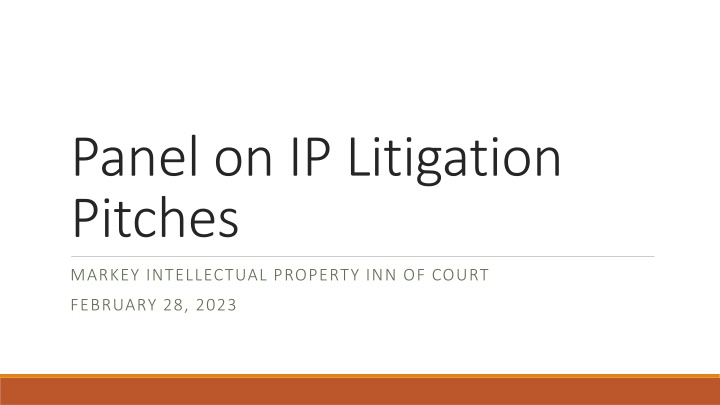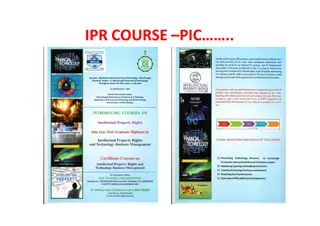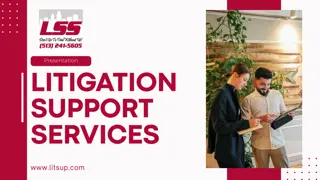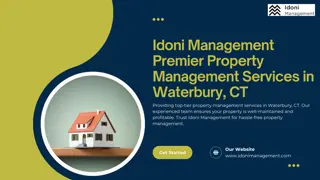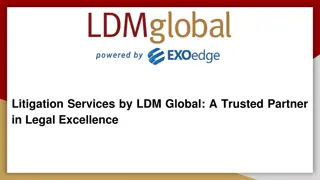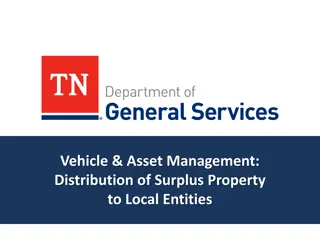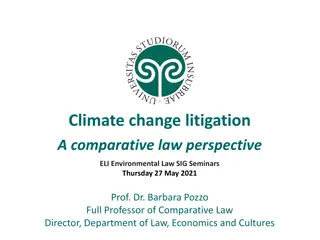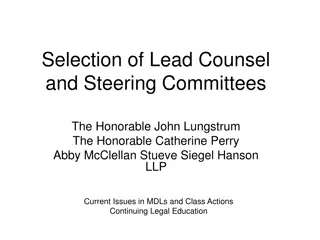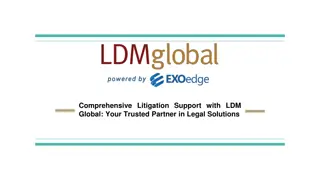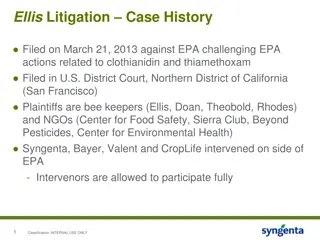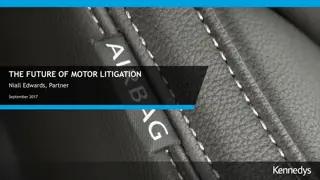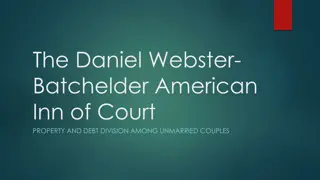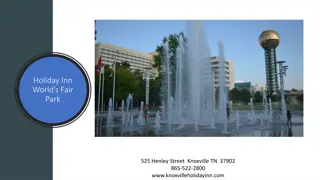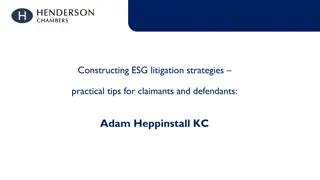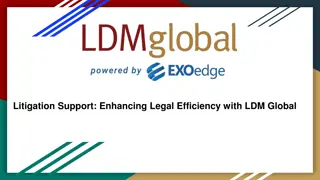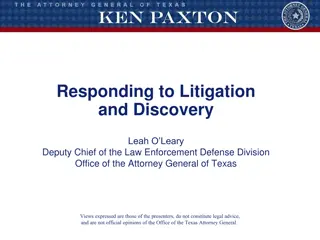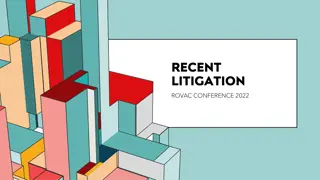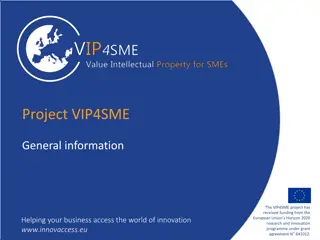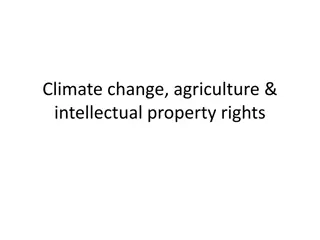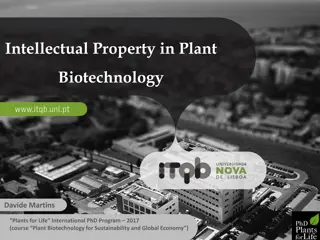Panel on IP Litigation Pitches at Markey Intellectual Property Inn
Panel discussion on evaluating, strategies in pitches, attendees, questions, budget tips, diversity, key factors in firm selection, and what not to do in a pitch. Ethical issues outlined under California Rule of Professional Conduct 1.18 regarding duties to prospective clients.
Download Presentation

Please find below an Image/Link to download the presentation.
The content on the website is provided AS IS for your information and personal use only. It may not be sold, licensed, or shared on other websites without obtaining consent from the author.If you encounter any issues during the download, it is possible that the publisher has removed the file from their server.
You are allowed to download the files provided on this website for personal or commercial use, subject to the condition that they are used lawfully. All files are the property of their respective owners.
The content on the website is provided AS IS for your information and personal use only. It may not be sold, licensed, or shared on other websites without obtaining consent from the author.
E N D
Presentation Transcript
Panel on IP Litigation Pitches MARKEY INTELLECTUAL PROPERTY INN OF COURT FEBRUARY 28, 2023
Panelists -Keith Newburry Edwards Lifesciences Corporation -Taylor King Western Digital Technologies, Inc. -Casey Kempner P&P Imports LLC
How in-depth should the litigation strategy that is presented in the pitch be?
What questions should the pitching party be prepared to ask you?
What are some tips that you could provide regarding providing a budget in a pitch?
What are some key factors of a firm that have influenced your selection in a pitch?
Pitches - Ethical Issues - California Rule of Professional Conduct 1.18 Duties to Prospective Client (Effective Nov. 1, 2018) - (a) A person who, directly or through an authorized representative, consults a lawyer for the purpose of retaining the lawyer or securing legal service or advice from the lawyer in the lawyer s professional capacity, is a prospective client. - (b) Even when no lawyer-client relationship ensues, a lawyer who has communicated with a prospective client shall not use or reveal information protected by Business and Professions Code section 6068, subdivision (e) and rule 1.6 that the lawyer learned as a result of the consultation, except as rule 1.9 would permit with respect to information of a former client. - (c) A lawyer subject to paragraph (b) shall not represent a client with interests materially adverse to those of a prospective client in the same or a substantially related matter if the lawyer received from the prospective client information protected by Business and Professions Code section 6068, subdivision (e) and rule 1.6 that is material to the matter, except as provided in paragraph (d). If a lawyer is prohibited from representation under this paragraph, no lawyer in a firm with which that lawyer is associated may knowingly undertake or continue representation in such a matter, except as provided in paragraph (d). - (d) When the lawyer has received information that prohibits representation as provided in paragraph (c), representation of the affected client is permissible if: (1) both the affected client and the prospective client have given informed written consent, or (2) the lawyer who received the information took reasonable measures to avoid exposure to more information than was reasonably necessary to determine whether to represent the prospective client; and (i) the prohibited lawyer is timely screened from any participation in the matter and is apportioned no part of the fee therefrom; and (ii) written notice is promptly given to the prospective client to enable the prospective client to ascertain compliance with the provisions of this rule.
Pitches - Ethical Issues - California Rule of Professional Conduct 7.1 Communications Concerning a Lawyer s Services (Effective Nov. 1, 2018) - (a) A lawyer shall not make a false or misleading communication about the lawyer or the lawyer s services. A communication is false or misleading if it contains a material misrepresentation of fact or law, or omits a fact necessary to make the communication considered as a whole not materially misleading. - (b) The Board of Trustees of the State Bar may formulate and adopt standards as to communications that will be presumed to violate rule 7.1, 7.2, 7.3, 7.4 or 7.5. The standards shall only be used as presumptions affecting the burden of proof in disciplinary proceedings involving alleged violations of these rules. Presumption affecting the burden of proof means that presumption defined in Evidence Code sections 605 and 606. Such standards formulated and adopted by the Board, as from time to time amended, shall be effective and binding on all lawyers.
